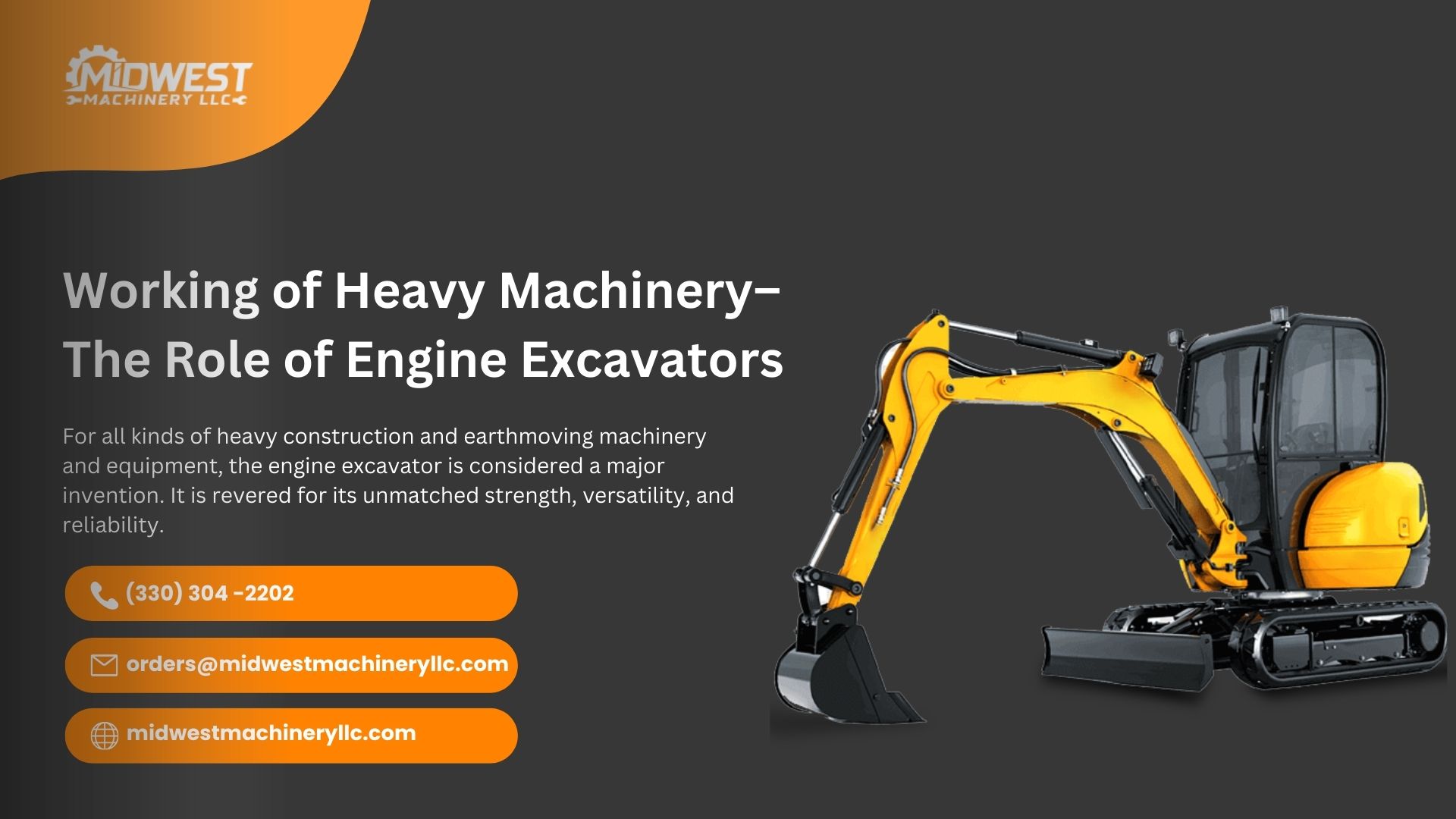For all kinds of heavy construction and earthmoving machinery and equipment, the engine excavator is considered a major invention. It is revered for its unmatched strength, versatility, and reliability. The engine is the core dynamo which powers an entire excaevator’s performance, not just in construction but also in mining, forrestry, as well as infrastructure development. This blog examines the importance of engine excavators, their features, applications, and offers tips on selecting the right engine excavator.
What Is An Engine Excavator?
An engine excavator is a term given to a hydraulic excavator that makes use of a gas or diesel engine. Such engines serve the purpose of providing the power necessary to control the machine’s hydraulic systems so that the lifting, digging, breaking as well as moving of heavy materials is done in an effective manner. Like all other machines, engine excavators also come in various sizes. There are compact models designed for residential work while massive models are constructed for use in mining and large scale industrial projects.
Engine Excavators Main Features
- Powerful Engine Performance: The excavator’s core component is the engine, which provides high torque and horsepower tailored to intricate lifting and deep ground cleaving.
- Fuel Efficiency: Modern day excavators come with intelligently designed engines with various fuel saving possibilities, dropping the operating expenses without power loss.
- Hydraulic Precision: Smooth and responsive control is offered through hydraulic systems with sharper construct precision, which are part of the engine excavators.
- Durability: Engine excavators are built to withstand and endure harsh surroundings, having low maintenance needs after proper servicing.
- Versatility: These machines can obtain varying tasks with different augers, breakers, and buckets due to their various attachments.
Engine Excavators Applications
Engine excavators are vital instruments in:
- Construction: Used in foundational digging, trenching, and general site preparatory clearing.
- Mining: Efficiently moves great numbers of earth and rocks at a time, hence their usefulness in mining.
- Forestry: Useful for clearing and managing natural landscapes.
- Demolition: Precision and safe structure breaking.
- Roadwork: Active in laying pipelines, building highways, etc.
How to Choose an Excavator Engine
When looking for an excavator engine, pay close attention to the following factors:
- Size and requirements of the work – Adjust to the size and capacity of the machine.
- Power and fuel – Check the horsepower, torque, and fuel economy.
- Attachments Compatibility – Ensure that the model is compatible with your tools.
- Brand and warranty – Look for reputable brands with adequate service warranty.
Excavator Engine Maintenance Tips
For optimum performance and life of the machine, check the following:
- Change the engine oil and replace the filters regularly.
- Check the cooling system for debris and clean it.
- Pay attention to fluid leakage and the level of hydraulics.
- Servicing the machine professionally at regular intervals.
Conclusions
An engine an excavator is a machine and as a piece of equipment, it is an indispensable tool for any heavy duty operation. With right engine power and maintenance, it provides unrivaled performance, reliability, and efficiency. Whether in construction, mining , or infrastructure development, fueling an excavator with a dependable high quality engine is a fundamental prerequisite for operational success. Exercising wisdom, regular maintenance and powering through projects boosts confidence across the domains.




